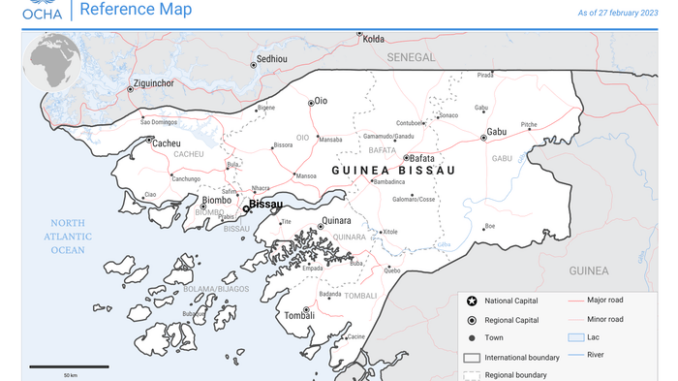
In Guinea-Bissau’s capital, Bissau, heightened security measures have been in place since Thursday February 27, following the opposition’s call for nationwide paralysis, coinciding with the alleged end of President Umaro Sissoco Embalo’s term.
While the capital remained calm, with markets and taxis operating as usual, the authorities maintained a visible presence, including armoured vehicles and personnel from both the National Guard and Rapid Intervention Police. The deployment was further bolstered by the ECOWAS stabilisation force, highlighting the tense political climate as opposition leaders urged citizens to halt all activities in protest.
Opposition leaders, led by former Prime Minister Domingos Simoes Pereira, contend that President Embalo’s five-year term officially ends on Thursday at 14:50 local time. Pereira and his supporters have called for a “total paralysis” of the country, urging people to stay at home, close businesses, and cease all transport activities. The call has had varying effects across Bissau, with some parents choosing not to send their children to school, while others, such as Aliu Seidi, president of the retailer association, have encouraged resumption of normal activities.
Amid the mounting political unrest, a high-level ECOWAS mission arrived in Guinea-Bissau in a bid to restore dialogue and avert further instability. The mission met with opposition figures, including former Prime Minister Geraldo Martins, in an effort to mediate between the government and opposition groups. With presidential and legislative elections already announced for 30 November, tensions remain high as the country faces uncertainty over its political future and the legitimacy of the current administration.
